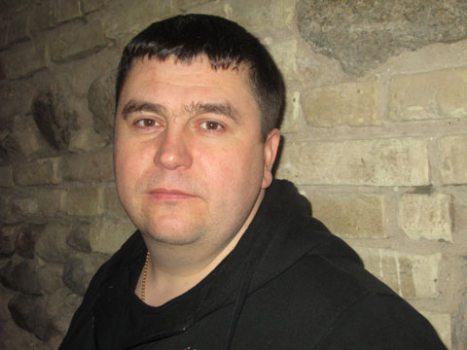Campaign “Human Rights Defenders against Death Penalty in Belarus” marks its fifth anniversary
The campaign "Human Rights Defenders against Death Penalty in Belarus" was formed in early 2009, and the fifth anniversary initiative is an occasion to make some conclusions. What has been done and what can be done to achieve more? The achievements of the initiative and the difficulties faced by the human rights defenders over the years, are revealed in the conversation with the coordinator Andrei Paluda.
“What are the main goals, set by the human rights defenders when the campaign was launched?
“The main goals and objectives are clear from the very name of the campaign. We aim to ensure that the death penalty is abolished in Belarus and support initiatives to abolish the death penalty in other countries. Our main aim is to introduce a moratorium as a first step. Moratorium in the future would push the bullet on the death penalty in our country.
Within the company, there are several directions. One of the important areas is legal assistance to people sentenced to death ... This is done also to make sure that the trial is conducted fairly. However, what concerns the cases of death row convicts, all of them were considered with fairly serious violations, if we analyze them in the light of international agreements. The result of our work in this direction is registration of complaints in the UN Committee on Human Rights in such cases. The UN considered appeals on behalf in the cases of Uladzislau Kavaliou and Andrei Zhuk, filed within the framework of the campaign. It should be noted that the case of Andrei Zhuk is the first case in our campaign, and it was the first appeal we sent to the UN Committee on Human Rights. At present, some more appeals on similar cases are pending at the UN Human Rights Committee. We maintain correspondence on these cases. Back in 1999, the UN Committee concluded in the case of Bandarenka, that non-issuance of the body to the relatives and concealment of the place of burial is inhumane treatment and torture. Therefore, one of our objectives is to work with families of the convicts, so that they are not left alone with this problem.
Another important direction is dissemination of information. The problem is that many people in Belarus do not even know that we have such a kind of punishment as death penalty. Therefore, it is very important to inform the public that this kind of punishment is used here, and tell how and in what conditions people are executed. So we lift the veil of secrecy from the death penalty. Another important thing is a wide public discussion. The death penalty has become a media subject, it has become interesting for a variety of media, both official and independent. The comments under relevant articles are different, some people speak for the death penalty, others draw arguments against it. However, at present the most important thing for us it the very existence of this discussion. We treat all opinions with respect. It is also very important for us that the ideas of abolishing the death penalty sometimes receive the greatest admiration among the readers.
“What are the main arguments against the death penalty, drawn by people during the discussions?
“Often the people say that they are against the death penalty due to the possible miscarriage of justice . This suggests that citizens do not trust the judicial system . And this is quite true, because nobody is perfect, and due to the existence of the death penalty in the country the price of the error might beeven a human life.”
“What are the difficulties you have to face in your work?”
“These difficulties are characteristic of our society in general. I have already mentioned the veil of secrecy surrounding the death penalty. To date, we still cannot say exactly how many people have been executed in our country since the declaration of independence. There is no official information about it. The authorities do not give publicity to all cases of death penalty.
Another great difficulty is the impossibility to hold peaceful assemblies, such as pickets and performances against the death penalty. The authorities have dismissed all our bids for holding mass events on 10 December, the Human Rights Day, or during the week against the death penalty, held in October 2013. This is clear evidence of the way the authorities treat the problem of the death penalty.


